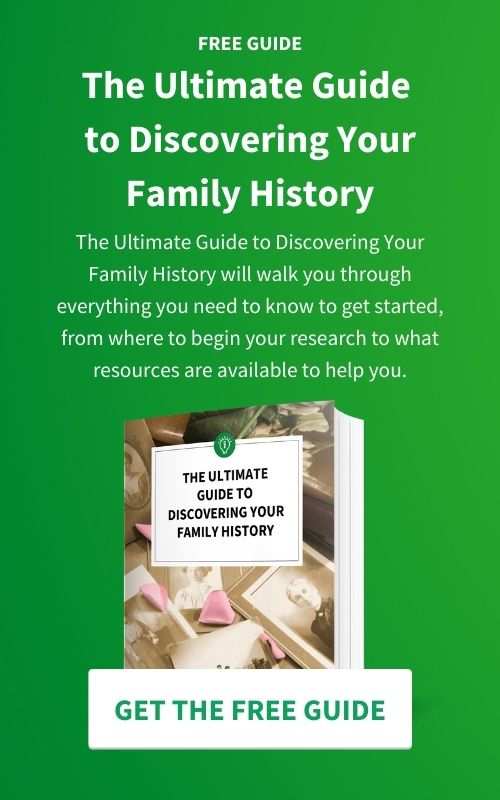The Complete Review of FamilySearch.org 2024
Ancestral research holds profound significance as it allows individuals to forge a deeper connection with their heritage, fostering a sense of identity and belonging. Understanding one's family history provides insight into cultural traditions, migration patterns, and the challenges and triumphs of past generations. This knowledge not only enriches personal narratives but also contributes to a broader understanding of human history and the diverse threads that weave the fabric of society. Ancestral research has the power to bridge generational gaps, instill a sense of pride, and promote empathy by highlighting the shared experiences that shape who we are today.
In the year 2023, FamilySearch.org has evolved into a pivotal resource for those embarking on the journey of self-discovery through ancestral exploration. Its vast collection of historical documents, digitized records, and collaborative tools enable users to piece together their family narratives with unprecedented ease. The platform's user-friendly interface and advanced search capabilities simplify the process of tracing lineage, even for beginners. Moreover, the integration of cutting-edge technology like DNA testing has opened new avenues for uncovering connections and understanding migrations that might have otherwise remained hidden. Through its commitment to preserving cultural heritage and fostering a global community of genealogists, FamilySearch.org has emerged as an indispensable tool for anyone seeking to unravel the intricate tapestry of their roots and embrace the stories of their ancestors.
Getting Started with FamilySearch.org
A group of individuals united by a common interest in uncovering their family histories laid the foundation for what would evolve into a formidable genealogical organization Family History Center and familysearch.org. With the progression of technology, records expanded from manual record searches to embracing online databases and DNA testing, enhancing the accuracy and efficiency of tracing ancestral roots. This evolution saw a transition from personal research to offering educational events and digital forums, sparking wider interest in genealogy.
Recognizing the need for structure, the organization formalized its setup, established leadership roles and committees, and cultivated partnerships with academia and historical institutions. Financial support enabled the expansion of research projects and publication endeavours, elevating its reputation as a custodian of cultural heritage. Today, this organization, once a small society, stands as a global network of genealogists and historians united by a shared passion, empowered by technology, and committed to unravelling the intricate threads of human history and identity.
The family search organization's mission is, "Inspiring people everywhere to connect with their family—across generations. FamilySearch is an international nonprofit organization".
FamilySearch.org employs a user-friendly registration process and operates on a free access model, allowing users to create accounts without cost and granting them access to a wealth of genealogical resources. The platform's commitment to democratizing genealogical research is evident through its provision of historical records, databases, and research tools without subscription fees, fostering an inclusive community of individuals passionate about tracing their family heritage, regardless of financial circumstances. This approach aligns with FamilySearch.org's mission to connect people with their ancestors' stories while promoting collaboration across the global genealogical community.
Exploring FamilySearch.org's Key Features in 2023
The FamilySearch platform offers several essential features that empower users in their ancestral research endeavours. The search function stands as a cornerstone, allowing users to explore a vast collection of historical records, documents, and resources. This function has been refined over the years, providing advanced search filters and algorithms that help users pinpoint relevant information quickly and accurately. In 2023, significant updates have been introduced to the search functionality, incorporating machine learning and natural language processing to improve search results' precision. This enhancement allows users to discover previously hidden connections and uncover more intricate details about their family history.
The platform's extensive collection of historical records is another critical component. Spanning census data, birth and death records, immigration documents, and more, this repository provides a comprehensive view of past generations. In 2023, FamilySearch expanded its historical record database to include more diverse global sources, enriching users' ability to trace lineages across borders and cultures.
A standout feature of FamilySearch is its family tree builder. This tool allows users to create and manage their family trees, linking individuals across generations. The family tree builder has received updates in 2023 to enhance user experience and collaboration. Improved integration with historical records and automated hints assist users in validating and expanding their family connections. Additionally, the introduction of a user-friendly interface has made it easier to add and edit family information, encouraging greater participation from users at all levels of genealogical expertise.
In 2023, FamilySearch also introduced DNA matching and analysis tools, leveraging advancements in genetic genealogy. This enables users to uncover biological relationships and connect with distant relatives who might share common ancestors. These tools further enrich the user experience by offering a multi-dimensional perspective on family history, combining both traditional genealogical research and genetic insights.
Overall, FamilySearch's continuous dedication to innovation has led to a platform that seamlessly integrates advanced technology with a vast array of historical records and collaborative tools. These features not only simplify the process of ancestral research but also enhance users' capacity to delve into their roots and construct a comprehensive understanding of their family's past.
Utilizing Expert Resources and Community Support
FamilySearch.org's ecosystem thrives on the contributions of both expert genealogists and a vibrant volunteer community. Expert genealogists play a pivotal role in providing guidance, expertise, and quality control to the platform's vast array of genealogical resources. They curate historical records, ensure accuracy, and develop research guides that help users navigate the complexities of ancestral research. These experts bring a wealth of experience and academic rigour, ensuring that the platform remains a reliable source of information for users at all levels of genealogical expertise.
The volunteer community is a driving force behind the platform's success, with individuals from around the world contributing their time, knowledge, and passion. These volunteers index and transcribe historical documents, making them searchable and accessible to users. The collaborative effort of these volunteers significantly accelerates the process of digitizing and preserving records, ultimately benefiting the entire genealogical community. Moreover, FamilySearch's engagement with the volunteer community fosters a sense of shared purpose and global connectivity, emphasizing the communal nature of genealogical exploration.
FamilySearch.org offers an extensive range of learning resources that empower users to embark on their ancestral journeys with confidence. Research guides, tutorials, and webinars cover diverse topics, from the basics of starting a family tree to advanced methodologies for deciphering complex historical records. These resources are designed to cater to different skill levels, ensuring that beginners and seasoned genealogists alike can access the information they need to uncover their family histories. By providing these educational materials, FamilySearch supports users in acquiring the necessary tools to navigate the often intricate landscape of genealogical research.
Networking and collaboration emerge as critical aspects of successful ancestry research. The platform's emphasis on community interaction facilitates knowledge exchange, mentorship, and idea-sharing. Users can connect with others who share their interests, exchange insights, and pool resources to tackle challenging research questions. Collaboration can lead to breakthroughs, as fellow researchers may offer fresh perspectives, access to untapped resources, or even firsthand family knowledge. Through networking and collaboration, FamilySearch.org fosters a sense of camaraderie and unity, reinforcing the notion that exploring one's family history is not just an individual pursuit but a shared endeavour that benefits from collective wisdom and effort.
Maximizing the Use of FamilySearch.org for Your Ancestry Research
Effectively utilizing FamilySearch.org's features can greatly enhance your genealogical research. Begin by using the search function with specific details you have about your ancestors, like names, birthdates, and locations. Filter results using advanced options, and make use of wildcard characters for variations in spelling. Once you find relevant records, examine associated details like witnesses, addresses, and occupations to gather context and verify connections. Remember that records may include multiple family members, providing insights into extended relationships.
The family tree builder is a powerful tool. Start with what you know and gradually work backward, adding family members as you find records. When adding a relative, look for hints FamilySearch provides based on matching records. These hints can lead to new information and connections. Additionally, use the platform's collaborative nature to connect with relatives. Sharing your tree and collaborating on research can lead to discoveries that others have made.
Supplementary resources beyond FamilySearch.org can also enrich your research. Local archives and libraries often hold unique records and resources specific to your ancestral area. Historical societies can provide insights into local history and events that affected your ancestors. Explore other genealogy websites like Ancestry.com, MyHeritage, or FindAGrave for additional records and tools. Social media groups and online forums focused on genealogy can connect you with experts and enthusiasts who might have advice, insights, or even shared ancestry.
Remember, genealogical research is a gradual process. Stay organized by keeping notes, citing sources, and tracking your progress. Be prepared to pivot if you hit roadblocks, and always approach information critically, cross-referencing records for accuracy. By combining FamilySearch's features with external resources and careful research practices, you can uncover a richer tapestry of your family's history.
Privacy and Data Security on FamilySearch.org
FamilySearch.org prioritizes user privacy and data security by adhering to privacy laws, employing encryption, and providing users control over their data sharing. This approach acknowledges the sensitivity of genealogical information, which includes personal and potentially identifying details. Given the potential risks of unauthorized access and misuse, safeguarding privacy is crucial, especially as genealogical research spans generations and interconnected family trees.
The relevance of privacy and security in ancestry research lies in the sensitive nature of the data involved. Ancestral records can expose the personal details of individuals across generations, making robust measures essential to prevent identity theft, fraud, and other misuse. FamilySearch.org's dedication to maintaining privacy not only protects individuals' data but also upholds the trustworthiness of the platform and its role in fostering secure and meaningful ancestral exploration.
Conclusion
In conclusion, the journey of discovering one's ancestors through FamilySearch.org holds immense value, connecting individuals with their heritage and fostering a sense of identity. The platform's evolution into a comprehensive resource in 2023 has revolutionized genealogical research, offering an expansive collection of historical records, user-friendly tools, and cutting-edge technology. By effectively utilizing features like the search function, family tree builder, and DNA analysis, users can uncover intricate details and connections within their family histories.
The strength of FamilySearch.org lies not only in its technological advancements but also in its thriving community of expert genealogists and volunteers. These dedicated individuals curate records, provide guidance, and create learning resources, enhancing users' research journeys. The platform's commitment to collaboration, demonstrated through networking opportunities and engagement with users, further enriches the exploration process.
While FamilySearch.org is a powerful tool, supplementary resources like local archives, historical societies, and other genealogy websites can further amplify research efforts. These external sources offer unique records, insights, and opportunities for networking, expanding the breadth and depth of ancestral exploration.
Amid this pursuit, FamilySearch.org ensures privacy and data security as paramount concerns. By adhering to privacy laws, employing encryption, and granting users control over their data, the platform safeguards sensitive information, recognizing the importance of maintaining the integrity and trustworthiness of ancestral research.
In essence, FamilySearch.org's comprehensive offerings, community engagement, and commitment to privacy collectively establish it as an invaluable companion in the journey of discovering one's roots. Through the convergence of technology, community, and respect for privacy, the platform empowers individuals to unravel the rich tapestry of their family histories, fostering a deeper connection with their past and an enriched understanding of themselves.

Article by Carol Walsh
Carol Walsh is the CEO of Creative Roots, a professional genealogy company. She has a passion for preserving family history and storytelling. Carol's research methodology centers around fact-finding and publishing in a format that readers can use to preserve the stories. Her ultimate goal is to help families connect with their past and each other.





